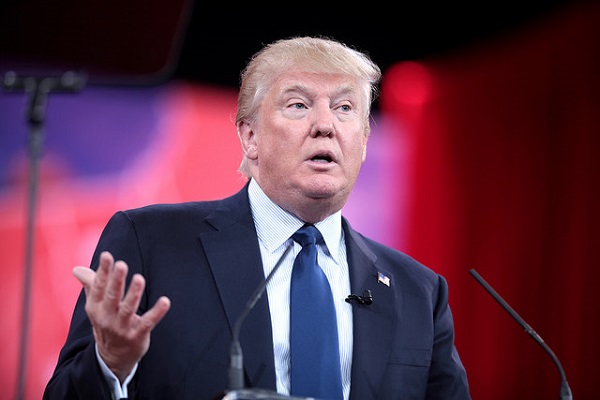
U.S. About to Eliminate Anti-Semitism Monitor in the State Department
- By Kelly Frazier --
- 29 Jun 2017 --

Nobody yet chosen to head the department; may be dismantled on July 1
Critics are coming down heavily on Trump for not filling the role of the special envoy to monitor and combat anti-Semitism and leaving the office vacant since he became president. The Office is specially devoted to fighting anti-Semitism, and the fact that the role has not been filled yet is taken by many as a sign of the president’s endorsement of the growing crimes targeted at Jews.
U.S. About to Eliminate Anti-Semitism Monitor in the State Department [/tweetthis]
Now, reports suggest the State Department is planning to close the office with the support of Donald Trump. July 1 is set to be the last day for the department. The rumors have been confirmed by Secretary of State Rex Tillerson, who said that the department has taken a pause and may not fill the job again.
The office was created 13 years ago by the Bush-led administration to specifically fight against anti-Semitism. At a time when anti-Semitic crimes have risen phenomenally, it can come as a huge shock to people, especially the Jews, that the department is facing closure. Critics are afraid this may cause the problem of anti-Semitism to go out of control.
Rep. Vern Buchanan is one of the foremost among those who are opposed to the department’s closure. He believes that “now, more than ever, the United States should send a clear message to the world that anti-Semitism in any form will not be tolerated.” He added, “We must start by filling the special envoy post responsible for monitoring and combating anti-Semitic activity. A failure to do so would be a step backward for Jewish communities in the United States and around the globe,” and has even written to Tillerson on this matter.
U.S. officials have not filled the top job at the Office to Monitor and Combat Anti-Semitism…. https://t.co/wRAvUvdvdB
— wtfiscrackin (@wtfiscrackin) June 27, 2017
In addition, there are a number of human rights and Jewish groups that have come out in protest against the decision and called on the government to fill the post as soon as possible. “It’s baffling to me that a time when we all acknowledge that anti-Semitism is a huge problem worldwide, that there wouldn’t be great eagerness to move swiftly to fill this post,” says Katrina Lantos Swett, a religious freedom advocate whose father was the sponsor for the legislation to create the Office. Tillerson argues the presence of a special person to combat anti-Semitism makes other officials become slack about the issue. Swett, however, is not convinced, although she agreed that it was a “sincere concern.”



















